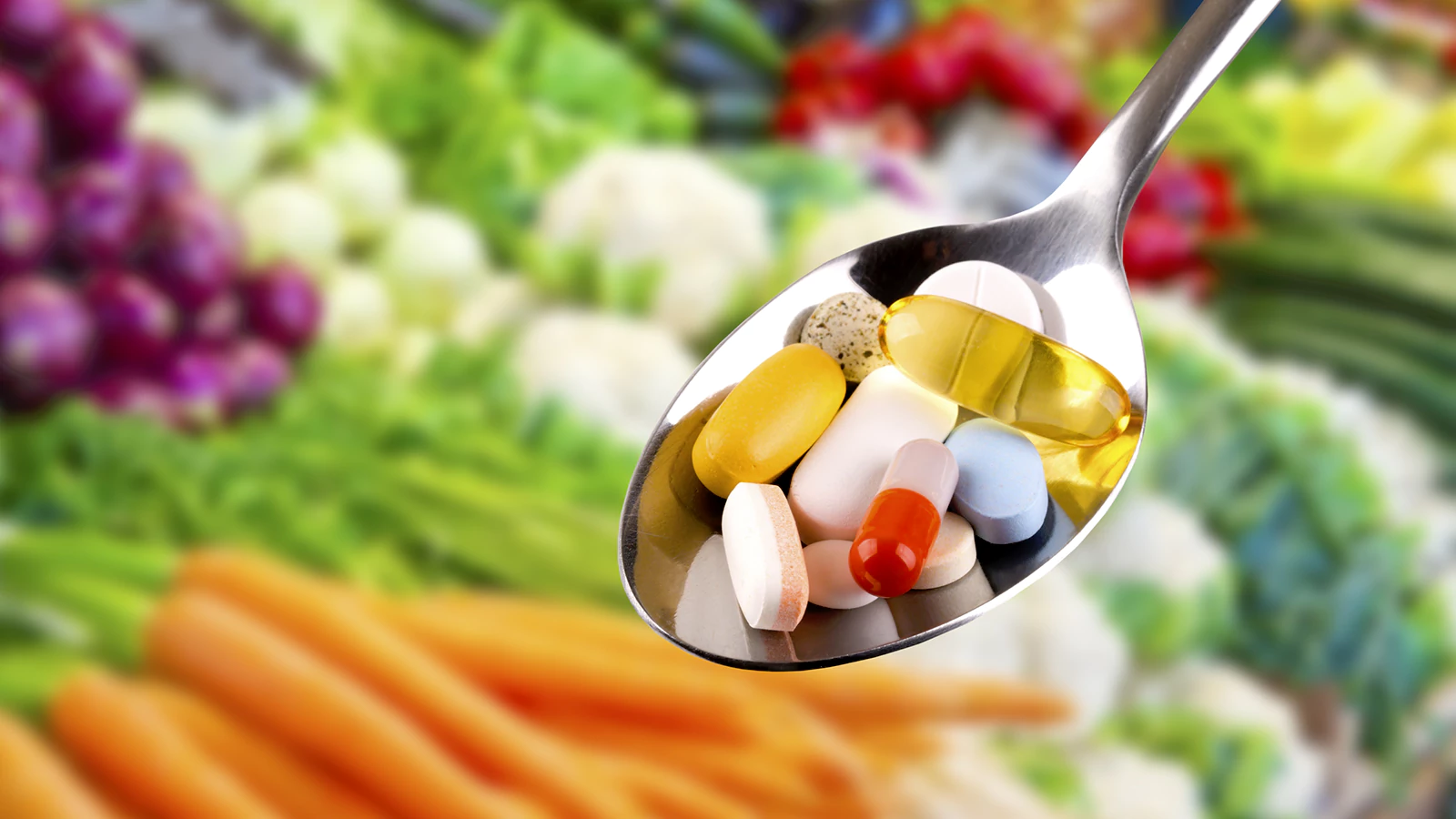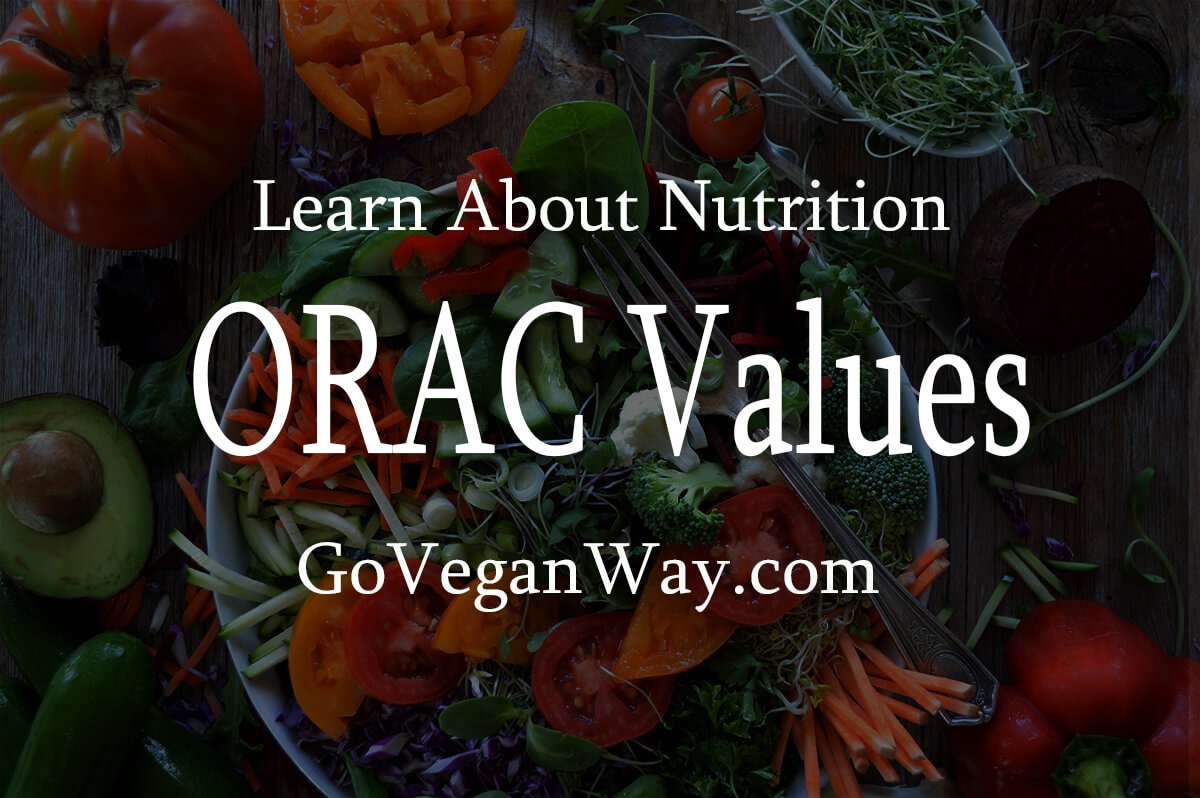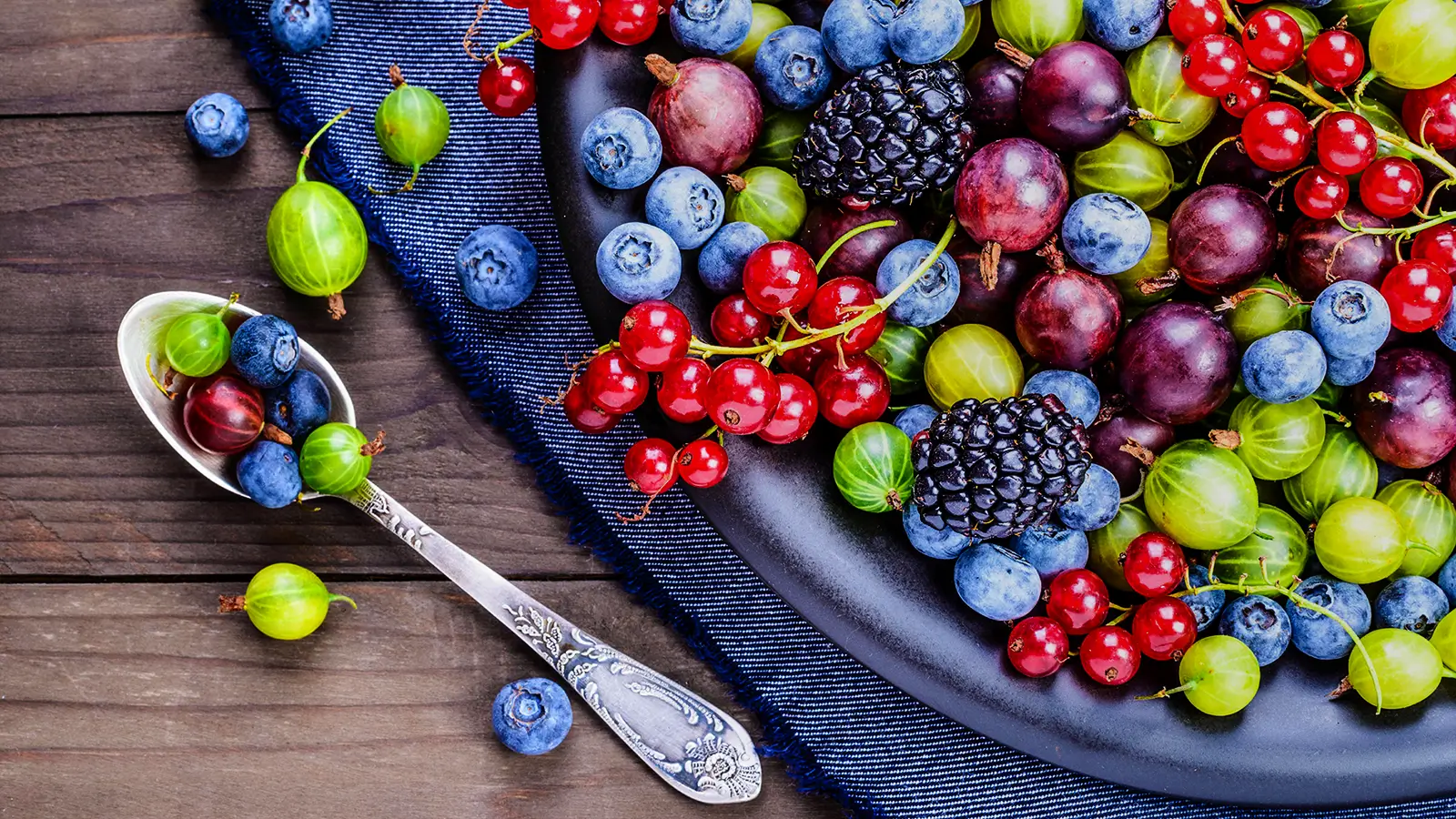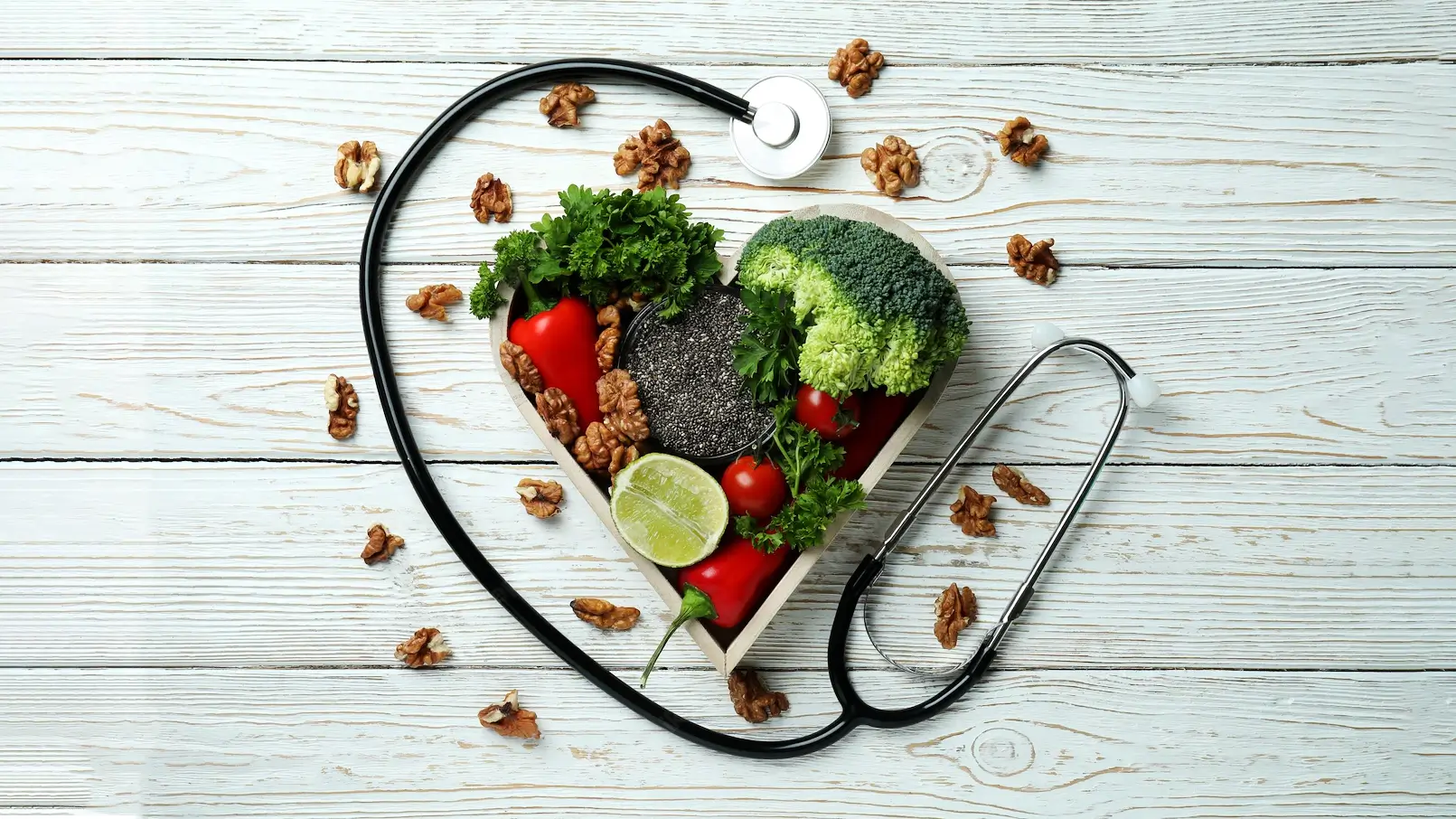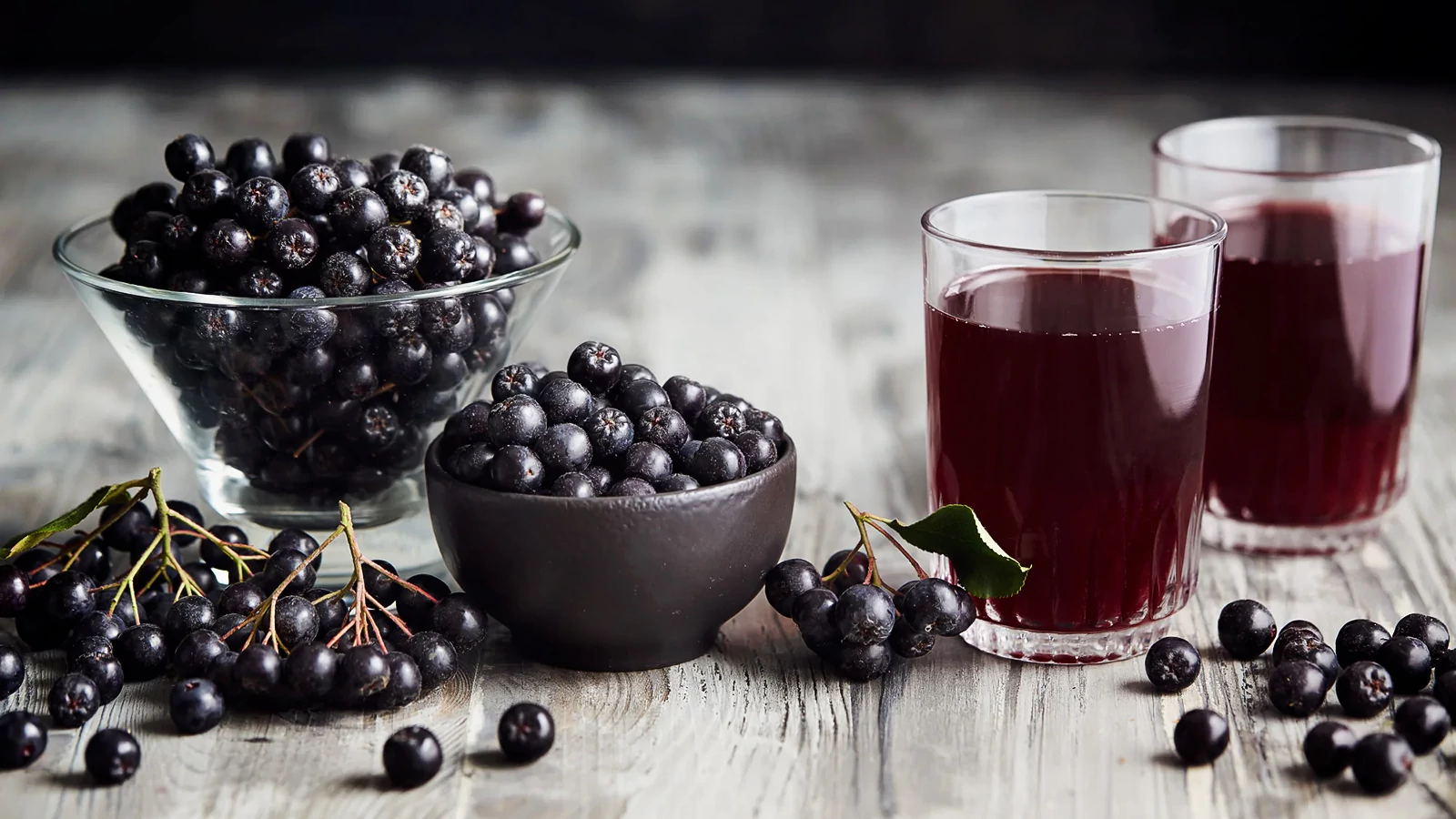Adaptations à l'Entraînement Altérées par les Antioxydants - Prévention des Dommages Oxydatifs Dans le Muscle
Les antioxydants supplémentaires peuvent bloquer le principal avantage de l'exercice, à savoir l'augmentation de notre propre production d'antioxydants endogènes.
Milos Pokimica
Écrit par : Milos Pokimica
Examiné Médicalement Par : Dr. Xiùying Wáng, M.D.
Mis à jour le 10 juin 2023Principaux Enseignements :
– When we exercise, there is inflammation due to the overproduction of free radicals. Supplementing with strong antioxidants like astaxanthin has become a strategy for many athletes and health-conscious individuals.
– Preventing oxidative damage in the muscle does not affect positive adaptation from exercise, but unnatural supraphysiological doses of extracted antioxidants or antioxidant supplements can potentially have detrimental impacts on normal physiological function.
– Exercise has been shown to increase the production of antioxidant enzymes over time, and dietary antioxidants have the potential to supplement our own internal defense mechanisms and prevent damage while increasing performance and recovery.
– While one study found that a tablespoon of turmeric had a level of improvement in endothelial function slightly better than rigorous physical exercise, ideally, we should do both as stress triggers our body to adapt and increase the production of internal antioxidant defenses in the long run.
– Moderate amounts of antioxidant-rich food or supplements can supplement our internal defense mechanisms effectively during the recovery period after exercise, without blocking its benefits of increasing internal antioxidant production over time.
– Excessive supplementation of extracted antioxidants or antioxidant supplements can potentially have detrimental impacts on normal physiological function. Thus, it is important to maintain a proper balance to get the most health benefits from exercise.
– Consuming antioxidant-rich whole foods like blueberries, cherries, dark chocolate, and tomato juice can improve athletic performance and reduce muscle damage.
– High doses of antioxidant supplements like vitamins C and E can block positive adaptation to exercise, whole food sources do not have this effect.
– La curcumine et l'astaxanthine dans un extrait d'aliment entier ou sous forme de supplément ne bloquent pas l'adaptation induite par l'exercice, mais renforcent en fait nos propres défenses grâce à l'expression génique qui a une voie d'activation différente de celle de l'exercice. De plus, l'astaxanthine améliore l'endurance en améliorant l'utilisation des graisses comme source d'énergie et en atténuant par conséquent l'épuisement du glycogène musculaire tout en combattant l'inflammation pour accélérer la récupération après l'exercice.
Exercice et inflammation
Lorsque nous faisons de l'exercice, il y a une inflammation dans les muscles due à la surproduction de radicaux libres due au taux élevé de consommation d'oxygène. La respiration lourde existe en raison de l'augmentation de la demande d'énergie. De ce fait, les molécules protéiques, lipidiques et nucléiques peuvent être endommagées en raison d'une surproduction d'espèces réactives d'oxygène et d'azote. Pour éviter cela, la supplémentation en antioxydants puissants comme l'astaxanthine est devenue une stratégie pour de nombreux athlètes professionnels et personnes actives soucieuses de leur santé.
C'était un grand débat jusqu'à ce que des études aient été faites sur la question de savoir si la prévention et la réduction de ce type de dommages annulent tous les avantages de l'exercice. On croyait que ces dommages aux muscles sont en fait ce qui déclenche les adaptations et la croissance musculaire et tous les autres avantages que nous tirons de l'exercice.
Ce n'est pas l'exercice qui est sain, c'est la récupération.
It is a concept known as hormesis, where low exposure to the damaging agent in the first phase has a favorable biological response due to the rump-up organism’s immune system followed by higher dose inhibition. Plants that are sprayed with low doses of herbicides that are not enough to kill them have much more phytochemicals in them as a defensive response to the toxin. Or if we consume a high amount of antioxidants before exercise, will we prevent an adaptation response? The theory proposed back in 1999 was that taking excessive amounts of antioxidant-rich aliments et antioxydants sous la forme extraite interrompra et sapera cette adaptation en prévenant en premier lieu les dommages oxydatifs. Dans les sports professionnels, ils craignaient que la consommation d'aliments riches en antioxydants puisse augmenter la récupération mais empêcher l'adaptation et ainsi empêcher l'augmentation de l'endurance et de la force.
Dans le monde de la musculation, ils ont émis l'hypothèse que les personnes qui souhaitent développer leurs muscles doivent éviter tout aliment riche en antioxydants en quantité excessive ou en supplément, en particulier avant de s'entraîner au gymnase.
Vitamine C et performances sportives altérées
On a constaté que la vitamine C avait cet effet à des doses élevées, supérieures à 1 gramme (Braakhuis et al., 2012). It reduced the negative effects of exercise-induced oxidation, including muscle damage, immune dysfunction, and fatigue. But at the same time mediated beneficial training adaptations and impaired sports performance substantially possibly by reducing mitochondrial biogenesis. In some other studies, it didn’t show a negative effect but this just shows how much individual this result is. If you already have high antioxidant consumption adding vitamin C before the exercise will be excessive but if you are a smoker it might not be. There is no clear answer here.
Doses of 200 to 400mg of vitamin C consumed through five or more servings of fruit and vegetables may be sufficient to reduce oxidative stress and provide other health benefits without impairing training adaptations. One beneficial aspect of exercise is an increase in insulin sensitivity and ameliorating type 2 diabetes. In this study researchers tested does a high rate of supplemental antioxidants affect the exercise-induced increase in insulin sensitivity (Ristow et al., 2009). Les sujets ont suivi un régime d'exercice de 4 semaines et ont pris 1 gramme de vitamine C et 400 UI de vitamine E par jour, puis la sensibilité à l'insuline a été mesurée. Des biopsies musculaires ont également été effectuées pour analyser l'expression des gènes, ainsi que des échantillons de plasma. L'objectif était de comparer les changements et l'influence potentielle des vitamines antioxydantes (vitamines C et E) sur les effets de l'exercice.
"L'exercice a augmenté les paramètres de sensibilité à l'insuline uniquement en l'absence d'antioxydants chez les individus non formés et pré-formés. Les médiateurs moléculaires de la défense endogène des ROS (superoxyde dismutases 1 et 2 ; glutathion peroxydase) ont également été induits par l'exercice, et cet effet a également été bloqué par la supplémentation en antioxydants. Conformément au concept de mitohormèse, le stress oxydatif induit par l'exercice améliore la résistance à l'insuline et provoque une réponse adaptative favorisant la capacité de défense antioxydante endogène. La supplémentation en antioxydants peut empêcher ces effets bénéfiques sur la santé de l'exercice chez l'homme.
L'exercice physique exerce de nombreux effets favorables sur la santé générale et il a notamment été démontré qu'il améliore le métabolisme du glucose dans l'état d'insulino-résistant. Cet effet peut être indépendant des changements de masse corporelle liés à l'exercice. De plus, l'exercice physique s'est avéré efficace pour prévenir le diabète de type 2 chez les personnes à haut risque et peut être encore plus efficace que le médicament antidiabétique le plus largement utilisé, la metformine. Ces résultats indiquent que les antioxydants altèrent gravement les effets de sensibilisation à l'insuline de l'exercice physique, tels que quantifiés par plusieurs mesures, et que cet effet se produit indépendamment du statut d'entraînement antérieur. Dans la présente étude, l'exercice physique a entraîné une expression fortement accrue de la superoxyde dismutase 1 et 2 et de la glutathion peroxydase chez des personnes précédemment non entraînées et préalablement entraînées, individus naïfs d'antioxydants, alors qu'un prétraitement avec des antioxydants a empêché cette induction. Des effets similaires mais moins prononcés ont été observés pour la catalase.
Pris ensemble, nous constatons que les suppléments d'antioxydants empêchent l'induction de régulateurs moléculaires de la sensibilité à l'insuline et de la défense antioxydante endogène par l'exercice physique. Conformément au concept de mitohormesis, nous proposons que des niveaux transitoirement accrus de stress oxydatif reflètent un processus potentiellement favorable à la santé, au moins en ce qui concerne la prévention de la résistance à l'insuline et du diabète sucré de type 2. "
(Ristow et al., 2009)
Prévenir les dommages oxydatifs dans le muscle
Aujourd'hui, cette théorie est partiellement acceptée. La prévention des dommages oxydatifs dans le muscle n'affecte pas l'adaptation positive que nous avons de l'exercice si nous avons un apport normal d'antioxydants qui correspond à ce que nous avons mangé au cours de notre évolution. C'est exactement le contraire. Il accélère la récupération et augmente la synthèse des protéines et augmente l'endurance. Si nous parlons d'antioxydants que nous obtenons d'une toute bonne source.
Mais que se passe-t-il lorsque nous prenons des doses supraphysiologiques non naturelles d'antioxydants extraits ou de suppléments d'antioxydants ? Lorsque nous faisons de l'exercice, des radicaux libres se forment et notre corps augmente ses propres antioxydants ou, en d'autres termes, il augmente les enzymes antioxydantes déjà mentionnées (c'est-à-dire, superoxyde dismutase, catalase, et glutathion peroxydase). Toutefois, lorsque l'exercice est trop vigoureux, la production excessive de radicaux libres peut submerger le système de défense antioxydant endogène, provoquant un état de stress oxydatif. Si notre propre système de défense est dépassé, cela peut avoir des effets néfastes sur les fonctions physiologiques normales.
Les antioxydants alimentaires ont le potentiel de compléter nos propres mécanismes de défense internes et de prévenir les dommages et d'augmenter ainsi les performances et la récupération. Il a été démontré que l'exercice est protecteur car il augmentera en fait la production de ces trois enzymes à long terme en tant que mécanisme adaptatif. Le principal avantage de tout cela sur un tapis roulant est simplement la protection antioxydante. Donc, si les antioxydants peuvent bloquer le principal avantage de l'exercice et que cela augmente notre propre production d'antioxydants, la consommation d'aliments riches en antioxydants peut avoir les mêmes effets cardiovasculaires bénéfiques que le cardio lui-même.
Exercice physique rigoureux vs cuillère à soupe de curcuma
Dans une étude réalisée au Japon (Akazawa et al., 2012), les chercheurs ont comparé les effets d'un exercice physique rigoureux et d'une cuillère à soupe de curcuma sur la fonction endothéliale. Les cellules endothéliales sont des cellules qui forment une ligne à la surface intérieure des vaisseaux sanguins. L'altération de la fonction endothéliale est le premier signe de l'apparition des maladies cardiovasculaires et du développement de l'athérosclérose. On la retrouve chez les fumeurs, les personnes souffrant d'hypertension artérielle, de diabète, de thrombose, de maladie coronarienne et d'hypercholestérolémie.
In the study, subjects had to do aerobic exercise training for 8 weeks in the duration of 60 minutes every day or take a teaspoon of turmeric. Both groups improved their endothelial function significantly. The Turmeric group showed a level of improvement even slightly better than the exercise group. So, 60 minutes of exercise is the same as one small tablespoon of turmeric. This, however, doesn’t mean you should stop exercising. There is a wide range of benefits from exercise besides an increase in antioxidant protection that I already wrote about in the first book of the series. Ideally, we should do both. It is the stress that triggers our body to adapt by increasing the production of superoxide dismutase, catalase, and glutathione peroxidase. For example, marathon runners will have an increase in DNA damage during the race but six days later they will actually have much less DNA damage than if they didn’t run at all thanks to the increase in our own body’s internal antioxidant defenses (Mastaloudis et al., 2004). En sollicitant l'organisme, nous en tirons des bénéfices à long terme.
Aliment complet source d'antioxydants et d'exercice
La prise de suppléments d'antioxydants peut annuler cet effet. Mais qu'en est-il des sources alimentaires d'antioxydants ? Une série d'études a examiné les effets de la consommation d'aliments riches en antioxydants sur les performances athlétiques. Les myrtilles, par exemple, riches en flavonoïdes anthocyaniques, ont permis de réduire les dommages musculaires inflammatoires et l'aigreur, les cerises ont accéléré la récupération, tout comme le chocolat noir, et le jus de tomate a permis d'améliorer le niveau de performance. Les antioxydants présents dans les fruits, les légumes et même les haricots se sont révélés être de puissants inhibiteurs de l'activité de la xanthine oxydase (Nagao et al., 1999). Xanthine oxydase est le principal radical libre formé pendant l'exercice, mais il est également impliqué dans la pathogenèse de plusieurs maladies telles que les troubles vasculaires, cancer, et la goutte.
Par exemple, une seule portion de cresson pendant deux mois prévient entièrement les dommages à l'ADN induits par l'exercice (Fogarty et al., 2013). This is well-known in professional sports.
Les sportifs de haut niveau ont leur régimes optimisés par des experts en nutrition afin d'augmenter leurs performances.
Les aliments qui augmentent l'endurance et la force et diminuent le temps de récupération sont en quelque sorte le "Saint Graal" de la nutrition sportive.
Mais la question demeure, si les vitamines C et E sous forme complémentaire bloquent l'adaptation, l'aliment riche en antioxydants fera-t-il de même ?
Une série d'études s'est également penchée sur cette question. Dans cette étude de 2008, les effets de la consommation d'extrait de cassis sur la neutralisation des effets positifs de l'exercice ont été examinés (Lyall et al., 2009). Le résultat est conforme aux attentes.
Le pouvoir antioxydant élevé de l'extrait de cassis riche en anthocyanes a supprimé le stress oxydatif induit par l'exercice. En même temps, cela a également renforcé les effets positifs de l'exercice. Un résultat similaire a été obtenu dans d'autres études similaires. L'objectif de cette étude (Funes et al., 2011) était de déterminer l'effet d'une supplémentation modérée en antioxydants (extrait de verveine citronnée) chez des volontaires masculins en bonne santé ayant suivi un protocole d'exercice excentrique de course à pied de 90 minutes pendant 21 jours. Ils voulaient voir si l'adaptation induite par l'exercice dépendait de sources alimentaires riches en antioxydants, en l'occurrence l'extrait de verveine citronnée. La conclusion est la suivante :
"Un exercice de course intense pendant 21 jours a induit une réponse antioxydante dans les neutrophiles de l'homme entraîné grâce à l'augmentation des enzymes antioxydantes catalase, glutathion peroxydase et glutathion réductase. La supplémentation avec des niveaux modérés d'extrait de verveine citronnelle antioxydante n'a pas bloqué cette réponse adaptative cellulaire et a également réduit les dommages oxydatifs induits par l'exercice des protéines et des lipides dans les neutrophiles et a diminué l'activité de la myéloperoxydase. De plus, la supplémentation en verveine citronnelle a maintenu ou diminué le niveau d'activité des transaminases sériques indiquant la protection du tissu musculaire. L'exercice a induit une diminution des niveaux d'interleukine-6 et d'interleukine-1β après 21 jours mesurés dans des conditions basales, qui n'a pas été inhibée par la supplémentation en antioxydants. Donc,
(Funes et al., 2011)
Il protégeait le muscle, augmentait les performances et la récupération, et en même temps n'affectait pas l'adaptation positive à l'exercice. Le meilleur des deux mondes. Il s'agit d'un antioxydant modérément puissant qui n'est peut-être pas assez puissant pour supprimer l'adaptation, mais qu'en est-il de quelque chose de plus fort ? Qu'en est-il de la curcumine par exemple ? Nous savons déjà qu'une cuillère à café de celui-ci a le même effet positif sur le système cardiovasculaire que 60 minutes d'exercice.
Et si vous faisiez du sport et preniez de la curcumine ensemble ?
Va-t-il nier l'adaptation, c'est un antioxydant très puissant ?
Dans cette étude (Sugawara et al., 2012) they measured the effects of curcumin alone, exercise alone, and curcumin plus exercise on arterial function. The positive effect was present in both groups with curcumin showing better results than exercise but when combined the positive effect was more than doubled then each group was put together showing not just that there is no negative effect on exercise adaptation but that there is actually a significant synergistic effect. Curcumin didn’t block the benefit of exercise but enhanced it. They concluded:
"Ces résultats suggèrent que l'exercice d'endurance régulier combiné à l'ingestion quotidienne de curcumine peut réduire la postcharge du VG dans une plus grande mesure que la monothérapie avec l'une ou l'autre intervention seule chez les femmes ménopausées."
(Sugawara et al., 2012)
The theory that taking an excessive amount of antioxidant-rich foods and antioxidants in the extracted form will interrupt and undermine this adaptation by preventing oxidative damage is partially correct. When antioxidants are consumed in a whole food way as nature intended there is no undermining of adaptation. Only supplemental antioxidants like vitamin C and vitamin E have shown this effect. Whole food extracts didn’t show this effect. They did block the oxidative damage to the muscles during exercise but did not block positive adaptation afterward.
Astaxanthine
Qu'en est-il de l'astaxanthine extraite sous une forme supplémentaire ? Quels seraient ses effets ?
Why vitamin C for example but not curcumin in a whole food way stop our body’s upregulation of antioxidant enzymes is a complicated science. It has to do with the activation of something called (Nrf2) erythroid 2-related factor 2 (Done et al., 2016).
« Nrf2 est le maître régulateur des défenses antioxydantes, un facteur de transcription qui régule l'expression de plus de 200 gènes. De plus en plus de preuves indiquent que la signalisation Nrf2 joue un rôle clé dans la façon dont le stress oxydatif médiatise les effets bénéfiques de l'exercice. Des augmentations épisodiques du stress oxydatif induites par des périodes d'exercice intensif stimulent l'activation de Nrf2 et, lorsqu'elles sont appliquées à plusieurs reprises, comme pour l'exercice régulier, entraînent une régulation à la hausse des défenses antioxydantes endogènes et une plus grande capacité globale à contrer les effets néfastes du stress oxydatif.
(Done et al., 2016)
La recherche utilisant des modèles animaux a identifié un potentiel pour l'astaxanthine de moduler indirectement le système de défense antioxydant endogène tel que Nrf2 indépendamment de l'exercice. It will independently activate our body’s defense mechanism with or without exercise. Il ne s'agit pas seulement d'un antioxydant universel puissant en soi, mais aussi d'un régulateur de nos mécanismes de défense, indépendamment de l'exercice physique ou non (Yang et al., 2011).
“Once activated, the Nrf2–ARE signaling pathway initiates the transcription of several genes and enzymes capable of upregulating our own antioxidant response to an oxidative stressor, potentially implicating Nrf2 in the beneficial effects of exercise. Similarly, phytochemicals can also stimulate the activation of the Nrf2–ARE pathway, a process that may occur through the modification of different cysteine residues to those targeted through exercise, suggesting a potential synergism between exercise and phytochemicals in the upregulation of antioxidant defense. Although a specific mechanism of action has yet to be elucidated, research conducted in animal models reports increases in Nrf2 expression, alongside the upregulation of endogenous antioxidant enzymes, including superoxide dismutase, catalase, and glutathione peroxidase, following astaxanthin administration“ .
(Brown et al., 2017)
L'astaxanthine, la curcumine, les aliments entiers et les suppléments d'aliments entiers ne bloquent pas l'adaptation induite par l'exercice, mais renforcent indépendamment nos propres défenses grâce à l'expression génique qui a une voie d'activation différente de celle de l'exercice.
Seuls les suppléments de vitamine C et de vitamine E bloquent l'adaptation.
En plus de renforcer notre propre défense et d'être un antioxydant extrêmement puissant à lui seul, l'astaxanthine stimule l'endurance, la force et la récupération. Lorsque nous commençons à faire de l'exercice, notre corps commence à utiliser les réserves de sucre (glycogène) stockées pour produire de l'énergie. Le foie et les muscles stockent du glycogène. Si l'exercice prolonge tout le glycogène les magasins seront utilisés. Si l'on veut augmenter l'endurance en retardant l'apparition de la fatigue, il va falloir trouver une méthode visant à atténuer cet épuisement. Lorsque le sucre est épuisé, notre corps commence à utiliser les graisses comme source d'énergie, mais ce processus est beaucoup plus lent que d'utiliser uniquement le glycogène stocké. La décomposition des graisses dépend de l'entrée d'acides gras à longue chaîne dans les mitochondries pour être brûlés sous forme d'énergie. Ce processus est effectué en utilisant l'enzyme régulatrice mitochondriale CPT1. Pendant l'exercice, les dommages oxydatifs induits par les radicaux libres sur cette enzyme peuvent altérer sa fonction, bloquant le transport des acides gras et, par conséquent, limitant la capacité des graisses à s'oxyder en tant que source d'énergie viable.
L'astaxanthine, un antioxydant soluble dans l'huile, est connue pour s'accumuler dans la membrane mitochondriale et fournir une protection contre les dommages causés par les radicaux libres à la fonction CPT1 (Aoi et al., 2008). On a donc émis l'hypothèse que, par sa fonction d'antioxydant, l'astaxanthine pourrait protéger la CPT1 contre les dommages oxydatifs, ce qui entraînerait une amélioration indirecte du métabolisme des graisses.
Des recherches ont montré que l'astaxanthine favorise l'endurance en améliorant l'utilisation des graisses comme source d'énergie et, par conséquent, en atténuant l'épuisement du glycogène musculaire (Ikeuchi et al., 2006). Outre l'augmentation de l'endurance, l'astaxanthine a également réduit de manière significative l'accumulation de graisse.
It is a good supplement for increasing fat utilization which means it is good for dieting and obesity and diabetes. Also, by increasing fat utilization, we will feel less hungry, have better control of our appetite, and don’t have low blood sugar during dieting as well. Also, increased utilization of fat means a decrease in the utilization of muscle tissue and catabolism during dieting. Bodybuilders should love this supplement. In human trials, a similar enhancement of physical performance was reported. In amateur male cyclists, 4 weeks of astaxanthin supplementation (4 mg/day) significantly improved 20 km cycling time (Earnest et al., 2011). Après l'exercice, il y a des courbatures ou, en d'autres termes, une cascade d'inflammations. L'astaxanthine est excellente pour lutter contre l'inflammation. Si la récupération est insuffisante après l'exercice, cela peut empêcher les personnes actives sur le plan récréatif et les athlètes de s'entraîner à nouveau. Une récupération inadéquate peut également augmenter les risques de blessure, de maladie et de surentraînement. Il existe donc différentes stratégies permettant de réduire les effets négatifs des lésions musculaires induites par l'exercice et d'accélérer la récupération.
L'astaxanthine pourrait exercer un effet bénéfique sur la récupération en inhibant à la fois les intermédiaires pro-oxydants et pro-inflammatoires.
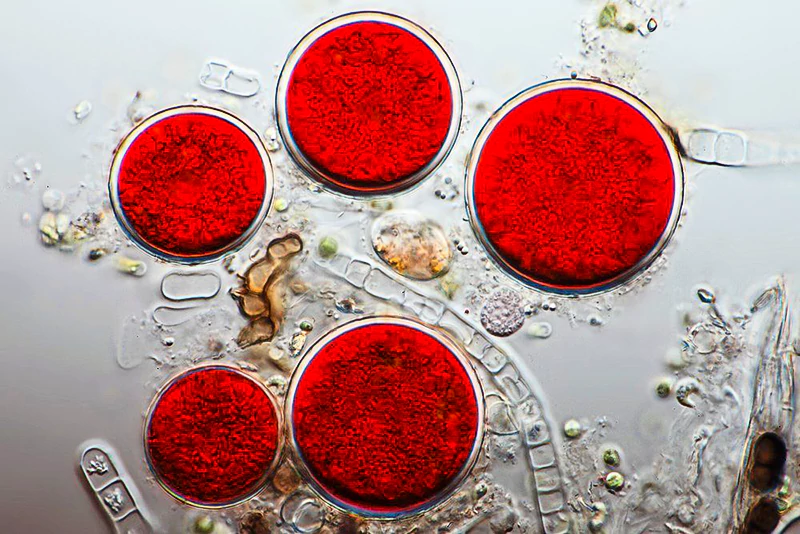
La supplémentation en astaxanthine (4 mg/jour) a été suggérée pour augmenter encore ces réductions, tout en exerçant un effet anti-inflammatoire secondaire en atténuant les augmentations de sérum induites par l'entraînement. Protéine C-réactive et total leucocyte et neutrophile compte (Baralic et al., 2015). En tant que complément sportif, l'astaxanthine présente d'autres avantages. Elle augmente l'endurance et la force, améliore l'utilisation des graisses et favorise la récupération, mais elle est également bénéfique pour stimuler les niveaux de testostérone.
De plus, l'astaxanthine augmente la synthèse des protéines. Dans cette étude (Kawamura et al., 2020), les chercheurs ont voulu mesurer l'impact de différents antioxydants sur le développement de la masse musculaire squelettique et la synthèse des protéines ou, en d'autres termes, sur l'hypertrophie musculaire. Afin d'induire une atrophie musculaire, une jambe de chaque souris a été plâtrée pendant 3 semaines. Après le retrait du plâtre, les souris ont été nourries pendant 2 semaines avec des suppléments de β-carotène, d'astaxanthine, de resvératrol et de ces trois antioxydants combinés. Le poids du muscle soléaire a augmenté dans tous les groupes dans une plus grande mesure que dans le groupe témoin, l'augmentation la plus importante étant observée dans le groupe mixte. Cette étude conclut que antioxydants are a good way to go if you want to build muscle. Nonetheless, an increase in protein synthesis is far from what anabolic steroids would do so don’t expect magic.
Si vous décidez de prendre ce supplément, combien devriez-vous en prendre ? Il n'y a pas de réponse claire. Les sportifs majeurs utilisent un minimum, et c'est un strict minimum pour eux, de 16 mg par jour. Dans certains cas, par exemple, les dosages des coureurs de marathon peuvent monter jusqu'à 200 mg avant un événement. La demi-vie de l'astaxanthine dans le plasma est d'environ 16 h après l'administration orale, ils feront donc une surdose avant de courir pour augmenter leur endurance pendant toute la course.
Plus c'est généralement mieux quand on parle de consommation d'antioxydants provenant de sources d'aliments entiers. Sous forme complémentaire, certains avantages commenceront à partir de 4 mg par jour. Selon la qualité générale de votre alimentation, cela peut être un point de départ potentiel, mais la dose la plus courante est de 12 mg par jour. Vous pouvez aller en toute sécurité beaucoup plus haut que cela. Si vous optez pour des doses plus élevées, toute l'astaxanthine ne sera pas utilisée, mais elle ne sera pas non plus excrétée. Gardez à l'esprit que cette molécule est liposoluble et qu'elle s'accumule. Plus vous montez haut, plus l'astaxanthine s'accumule dans les tissus. La demi-vie est d'environ 16 heures avec un pic de concentration dans le sang d'environ 10 heures.
In wild salmon, astaxanthin tissue concentration can go as high as 40mg/kg. For 80kg human that will translate into 3200mg. If you take 12mg a day that means you will go to this level of wild salmon concentration in 267 days if your body doesn’t utilize any of the ingested astaxanthin and that is not the case.
Conclusion :
- L'exercice crée une inflammation dans les muscles en raison de la surproduction de radicaux libres.
- Ce n'est pas l'exercice qui est sain, c'est la récupération.
- L'exercice augmente la production endogène de trois enzymes antioxydantes (superoxyde dismutase 1 et 2 et glutathion peroxydase) à long terme en tant que mécanisme adaptatif.
- Les suppléments d'antioxydants réduisent les effets négatifs de l'oxydation induite par l'exercice, notamment les dommages musculaires, les dysfonctionnements immunitaires et la fatigue.
- Les suppléments antioxydants empêchent l'induction de la défense antioxydante endogène par l'exercice physique.
- Les suppléments d'antioxydants empêchent l'induction de régulateurs moléculaires de la sensibilité à l'insuline.
- La vitamine C s'est avérée médiatrice d'adaptations d'entraînement bénéfiques à fortes doses supérieures à 1 gramme.
- Dans une situation où l'exercice est trop vigoureux, une production excessive de radicaux libres peut submerger le système de défense antioxydant endogène.
- Lorsque les antioxydants sont consommés sous forme d'aliments complets, l'adaptation n'est pas compromise. Seuls les antioxydants supplémentaires comme la vitamine C et la vitamine E ont montré cet effet.
- Les antioxydants alimentaires ont le potentiel de compléter nos mécanismes de défense internes et de prévenir les dommages et d'augmenter ainsi les performances et la récupération.
- Les aliments très riches en antioxydants peuvent avoir les mêmes effets cardiovasculaires bénéfiques que le cardio lui-même (60 minutes d'exercice équivaut à une petite cuillère à soupe de curcuma).
- Les antioxydants présents dans les fruits, les légumes et même les haricots se sont révélés être de puissants inhibiteurs de l'activité de la xanthine oxydase.
- L'astaxanthine module indirectement le système de défense antioxydant endogène tel que Nrf2 indépendamment de l'exercice. It will independently activate our body’s defense mechanism with or without exercise.
- L'astaxanthine, la curcumine, les aliments entiers et les suppléments d'aliments entiers ne bloquent pas l'adaptation induite par l'exercice, mais renforcent indépendamment nos défenses grâce à l'expression génique qui a une voie d'activation différente de celle de l'exercice.
- L'astaxanthine est bénéfique pour l'endurance en améliorant l'utilisation des graisses comme source d'énergie et en atténuant par conséquent l'épuisement du glycogène musculaire.
- Les antioxydants indépendants d'autres facteurs augmentent la synthèse des protéines ou en d'autres termes l'hypertrophie musculaire dans les muscles squelettiques.
- Plus c'est généralement mieux quand on parle de consommation d'antioxydants provenant de sources d'aliments entiers.
FAQ
Références :
Passages sélectionnés dans un livre : Passages sélectionnés dans un livre : Pokimica, Milos. Devenir vegetarien? Examen de la science, partie 3. Kindle ed., Amazon, 2020.
- Braakhuis A. J. (2012). Effect of vitamin C supplements on physical performance. Current sports medicine reports, 11(4), 180–184. https://doi.org/10.1249/JSR.0b013e31825e19cd
- Ristow, M., Zarse, K., Oberbach, A., Klöting, N., Birringer, M., Kiehntopf, M., Stumvoll, M., Kahn, C. R., & Blüher, M. (2009). Antioxidants prevent health-promoting effects of physical exercise in humans. Actes de l'Académie nationale des sciences des États-Unis d'Amérique, 106(21), 8665–8670. https://doi.org/10.1073/pnas.0903485106
- Akazawa, N., Choi, Y., Miyaki, A., Tanabe, Y., Sugawara, J., Ajisaka, R., & Maeda, S. (2012). Curcumin ingestion and exercise training improve vascular endothelial function in postmenopausal women. Recherche en nutrition (New York, NY), 32(10), 795–799. https://doi.org/10.1016/j.nutres.2012.09.002
- Mastaloudis, A., Yu, T. W., O’Donnell, R. P., Frei, B., Dashwood, R. H., & Traber, M. G. (2004). Endurance exercise results in DNA damage as detected by the comet assay. Biologie et médecine des radicaux libres, 36(8), 966–975. https://doi.org/10.1016/j.freeradbiomed.2004.01.012
- Nagao, A., Seki, M., & Kobayashi, H. (1999). Inhibition of xanthine oxidase by flavonoids. Bioscience, biotechnology, and biochemistry, 63(10), 1787–1790. https://doi.org/10.1271/bbb.63.1787
- Fogarty, M. C., Hughes, C. M., Burke, G., Brown, J. C., & Davison, G. W. (2013). Acute and chronic watercress supplementation attenuates exercise-induced peripheral mononuclear cell DNA damage and lipid peroxidation. The British journal of nutrition, 109(2), 293–301. https://doi.org/10.1017/S0007114512000992
- Lyall, K. A., Hurst, S. M., Cooney, J., Jensen, D., Lo, K., Hurst, R. D., & Stevenson, L. M. (2009). Short-term blackcurrant extract consumption modulates exercise-induced oxidative stress and lipopolysaccharide-stimulated inflammatory responses. American journal of physiology. Regulatory, integrative and comparative physiology, 297(1), R70–R81. https://doi.org/10.1152/ajpregu.90740.2008
- Funes, L., Carrera-Quintanar, L., Cerdán-Calero, M., Ferrer, M. D., Drobnic, F., Pons, A., Roche, E., & Micol, V. (2011). Effect of lemon verbena supplementation on muscular damage markers, proinflammatory cytokines release and neutrophils’ oxidative stress in chronic exercise. European journal of applied physiology, 111(4), 695–705. https://doi.org/10.1007/s00421-010-1684-3
- Sugawara, J., Akazawa, N., Miyaki, A., Choi, Y., Tanabe, Y., Imai, T., & Maeda, S. (2012). Effect of endurance exercise training and curcumin intake on central arterial hemodynamics in postmenopausal women: pilot study. American journal of hypertension, 25(6), 651–656. https://doi.org/10.1038/ajh.2012.24
- Done, A. J., & Traustadóttir, T. (2016). Nrf2 mediates redox adaptations to exercise. Redox biology, 10, 191–199. https://doi.org/10.1016/j.redox.2016.10.003
- Yang, Y., Seo, J. M., Nguyen, A., Pham, T. X., Park, H. J., Park, Y., Kim, B., Bruno, R. S., & Lee, J. (2011). Astaxanthin-rich extract from the green alga Haematococcus pluvialis lowers plasma lipid concentrations and enhances antioxidant defense in apolipoprotein E knockout mice. The Journal of nutrition, 141(9), 1611–1617. https://doi.org/10.3945/jn.111.142109
- Brown, D. R., Gough, L. A., Deb, S. K., Sparks, S. A., & McNaughton, L. R. (2017). Astaxanthin in Exercise Metabolism, Performance and Recovery: A Review. Frontiers in Nutrition, 4. https://doi.org/10.3389/fnut.2017.00076
- Aoi, W., Naito, Y., Takanami, Y., Ishii, T., Kawai, Y., Akagiri, S., Kato, Y., Osawa, T., & Yoshikawa, T. (2008). Astaxanthin improves muscle lipid metabolism in exercise via inhibitory effect of oxidative CPT I modification. Biochemical and biophysical research communications, 366(4), 892–897. https://doi.org/10.1016/j.bbrc.2007.12.019
- Ikeuchi, M., Koyama, T., Takahashi, J., & Yazawa, K. (2006). Effects of astaxanthin supplementation on exercise-induced fatigue in mice. Biological & pharmaceutical bulletin, 29(10), 2106–2110. https://doi.org/10.1248/bpb.29.2106
- Earnest, CP, Lupo, M., White, KM et Church, TS (2011). Effet de l'astaxanthine sur les performances du contre-la-montre cycliste. Revue internationale de médecine du sport, 32(11), 882–888. https://doi.org/10.1055/s-0031-1280779
- Baralic, I., Andjelkovic, M., Djordjevic, B., Dikic, N., Radivojevic, N., Suzin-Zivkovic, V., Radojevic-Skodric, S. et Pejic, S. (2015). Effet de la supplémentation en astaxanthine sur les IgA salivaires, le stress oxydatif et l'inflammation chez les jeunes joueurs de football. Médecine complémentaire et alternative factuelle : eCAM, 2015, 783761. https://doi.org/10.1155/2015/783761
- Kawamura, A., Aoi, W., Abe, R., Kobayashi, Y., Wada, S., Kuwahata, M. et Higashi, A. (2020). L'apport combiné d'astaxanthine, de β-carotène et de resvératrol augmente la synthèse des protéines pendant l'hypertrophie musculaire chez la souris. Nutrition (Burbank, comté de Los Angeles, Californie), 69, 110561. https://doi.org/10.1016/j.nut.2019.110561
Articles Similaires
Vous avez des questions sur la nutrition et la santé ?
J'aimerais avoir de vos nouvelles et y répondre dans mon prochain post. J'apprécie votre contribution et votre opinion et j'ai hâte d'avoir de vos nouvelles bientôt. Je vous invite également à nous suivre sur Facebook, Instagram et Pinterest pour plus de contenu sur l'alimentation, la nutrition et la santé. Vous pouvez y laisser un commentaire et entrer en contact avec d'autres passionnés de santé, partager vos conseils et expériences, et obtenir le soutien et les encouragements de notre équipe et de notre communauté.
J'espère que ce billet a été instructif et agréable pour vous et que vous êtes prêt à mettre en pratique les connaissances que vous avez acquises. Si vous avez trouvé ce billet utile, veuillez le partager à vos amis et à votre famille qui pourraient également en bénéficier. On ne sait jamais qui peut avoir besoin de conseils et de soutien dans son parcours de santé.
– Vous pourriez aussi aimer –

Apprendre la Nutrition
Milos Pokimica est docteur en médecine naturelle, nutritionniste clinique, rédacteur en santé médicale et nutrition et conseiller en sciences nutritionnelles. Auteur de la série de livres Devenir vegetarien ? Examen des sciences, il exploite également le site Web de santé naturelle GoVeganWay.com
Avis de non-responsabilité médicale
GoVeganWay.com vous propose des critiques des dernières recherches liées à la nutrition et à la santé. Les informations fournies représentent l'opinion personnelle de l'auteur et ne sont pas destinées ni implicitement à remplacer un avis médical professionnel, un diagnostic ou un traitement. Les informations fournies sont fournies à titre informatif uniquement et ne sont pas destinées à remplacer la consultation, le diagnostic et/ou le traitement médical d'un médecin ou d'un prestataire de soins de santé qualifié.NE JAMAIS IGNORER LES CONSEILS MÉDICAUX PROFESSIONNELS OU RETARDER LA RECHERCHE DE SOINS MÉDICAUX EN RAISON DE QUELQUE CHOSE QUE VOUS AVEZ LU OU ACCÉDÉ SUR GoVeganWay.com
N'APPLIQUEZ JAMAIS DE CHANGEMENTS AU STYLE DE VIE OU TOUT CHANGEMENT À LA SUITE DE QUELQUE CHOSE QUE VOUS AVEZ LU SUR GoVeganWay.com AVANT DE CONSULTER UN PRATICIEN MÉDICAL AGRÉÉ.
En cas d'urgence médicale, appelez immédiatement un médecin ou le 911. GoVeganWay.com ne recommande ni n'approuve aucun groupe, organisation, test, médecin, produit, procédure, opinion ou autre information spécifique pouvant être mentionné à l'intérieur.
Choix de l'éditeur -
Milos Pokimica est docteur en médecine naturelle, nutritionniste clinique, rédacteur en santé médicale et nutrition et conseiller en sciences nutritionnelles. Auteur de la série de livres Devenir vegetarien ? Examen des sciences, il exploite également le site Web de santé naturelle GoVeganWay.com
Derniers articles –
Nouvelles Basées Sur Les Plantes
-
Try These Vegan Buttermilk Fried Oyster Mushrooms
le juillet 25, 2024
-
Beyond Meat’s New Product Isn’t Trying To Replicate Meat – Here’s Why
le juillet 24, 2024
-
Meat And Dairy Use ‘Tobacco Tactics’ To Market Products, Report Finds
le juillet 24, 2024
-
By Chloe Founder Chloe Coscarelli Opens New Vegan Restaurant
le juillet 24, 2024
-
How To Make This Vegan Fried Chicken
le juillet 24, 2024
-
This Dippy Egg Yolk Is 100% Vegan
le juillet 23, 2024
-
Dr Jane Goodall Says ‘Think Before You Buy’ To Protect Animals And The Planet
le juillet 23, 2024
Top Des Nouvelles Sur la Santé - ScienceDaily
- Could wearable devices adversely affect health?le juillet 24, 2024
For patients with Afib, using a wearable device can lead to higher rates of anxiety about their Afib symptoms and treatment, doctor visits, and use of informal healthcare resources, according to a new study.
- Stroke recovery: It’s in the genesle juillet 24, 2024
New research has found that specific genes may be related to the trajectory of recovery for stroke survivors, providing doctors insights useful for developing targeted therapies.
- Does your body composition affect your risk of dementia or Parkinson’s?le juillet 24, 2024
People with high levels of body fat stored in their belly or arms may be more likely to develop diseases like Alzheimer’s and Parkinson’s than people with low levels of fat in these areas, according to new research. The study also found that people with a high level of muscle strength were less likely to develop these diseases than people with low muscle strength.
- Daily rhythms depend on receptor density in biological clockle juillet 24, 2024
Tweaking the numbers of receptors in a key brain area changes the daily rhythms of rest and wake in mice.
- Increasing Prediabetes remission for type 2 diabetesle juillet 24, 2024
In mice with heart failure with preserved ejection fraction (HFpEF), increasing ketone supply to the heart allowed their hearts to utilize more ketones and produce more energy.
- Prediabetes remission for type 2 diabetes preventionle juillet 24, 2024
Current medical guidelines recommend that people in a preliminary stage of type 2 diabetes lose at least 7 percent of their body weight in order to prevent manifest diabetes. Diabetes experts advocate glycemic remission (normalization of blood sugar regulation) as a prevention goal for people with prediabetes or a high risk of type 2 diabetes. The article’s claim is supported by numerous international scientists as well as by the DZD’s Prevention Academy.Current medical guidelines recommend […]
- Preventing brain damage in preterm babiesle juillet 24, 2024
An interdisciplinary team of physicians and scientists show for the first time that a blood protein called fibrin blocks an essential biological process that drives brain development in early life. They identified a root cause of developmental delays that result from brain bleeds in premature infants, opening a path for new therapeutic strategies to counter long-term health risks.
PubMed, #régime-vegan –
- Recipe for Heart Health: A Randomized Crossover Trial on Cardiometabolic Effects of Extra Virgin Olive Oil Within a Whole-Food Plant-Based Vegan Dietle juillet 24, 2024
CONCLUSIONS: Both plant-based diet patterns improved cardiometabolic risk profiles compared with baseline diets, with more pronounced decreases in LDL-C after the low EVOO diet. Addition of EVOO after following a low intake pattern may impede further lipid reductions.
- Micronutrient intake and status in young vegans, lacto-ovo-vegetarians, pescatarians, flexitarians, and omnivoresle juillet 18, 2024
CONCLUSIONS: Our study indicated that the participating youth had low risk of inadequate intake of most micronutrients, partly due to high supplement usage. However, for iodine, vitamin D, and selenium higher risk of inadequate intake was found. UIC corroborated the low iodine intake among vegans. Thus, we suggest iodine status of youth in Norway should be monitored, especially among young fertile women who omits dietary iodine sources, until a mandatory iodine fortification program is…
- Effects of a cafeteria-based sustainable diet intervention on the adherence to the EAT-Lancet planetary health diet and greenhouse gas emissions of consumers: a quasi-experimental study at a large…le juillet 18, 2024
BACKGROUND: Sustainable diets contribute to improving human health and reducing food-related greenhouse gas emissions (GHGE). Here, we established the effects of a facility-based sustainable diet intervention on the adherence to the EAT-Lancet Planetary Health Diet and GHGE of consumers.
- Effect of a Dietary Intervention on Insulin Requirements and Glycemic Control in Type 1 Diabetes: A 12-Week Randomized Clinical Trialle juillet 17, 2024
This study compared the effects of a low-fat vegan diet to those of a portion-controlled diet in people with type 1 diabetes. Over 12 weeks, the average total daily dose of insulin decreased significantly and insulin sensitivity increased significantly in the vegan group, while no significant changes were observed in the group receiving the portion-controlled diet. Total and LDL cholesterol decreased in the vegan group, as did the ratio of blood urea nitrogen to creatinine. A1C decreased in […]
- Effects of Plant-Based Diets on Markers of Insulin Sensitivity: A Systematic Review and Meta-Analysis of Randomised Controlled Trialsle juillet 13, 2024
The aim of this systematic review and meta-analysis was to examine the effects of plant-based diets on markers of insulin sensitivity in people with overweight/obesity, prediabetes, or type 2 diabetes (T2D). A systematic literature search in MEDLINE, Embase, CINAHL, and CENTRAL was conducted, and randomised controlled trials (RCTs) investigating the effect of plant-based diets (vegan, ovo-vegetarian, lacto-vegetarian, and lacto-ovo-vegetarian) for ≥14 d on markers of insulin sensitivity in…
Messages aléatoires –
Postes en vedette -

Dernières Nouvelles de PubMed, #alimentation végétale –
- Recipe for Heart Health: A Randomized Crossover Trial on Cardiometabolic Effects of Extra Virgin Olive Oil Within a Whole-Food Plant-Based Vegan Dietpar Andrea M Krenek le juillet 24, 2024
CONCLUSIONS: Both plant-based diet patterns improved cardiometabolic risk profiles compared with baseline diets, with more pronounced decreases in LDL-C after the low EVOO diet. Addition of EVOO after following a low intake pattern may impede further lipid reductions.
- Neuronutritional Approach to Fibromyalgia Management: A Narrative Reviewpar Anastasiia Badaeva le juillet 23, 2024
Fibromyalgia (FM) is a complex and common syndrome characterized by chronic widespread pain, fatigue, sleep disturbances, and various functional symptoms without clear structural or pathological causes. Affecting approximately 1-5% of the global population, with a higher prevalence in women, FM significantly impacts patients’ quality of life, often leading to considerable healthcare costs and loss of productivity. Despite its prevalence, the etiology of FM remains elusive, with genetic,…
- Effects of Oregano (Origanum vulgare) Essential Oil Supplementation on Growth Performance of Zebrafish (Danio rerio) Fed a High-Inclusion Soybean Meal Dietpar Aubrey Dissinger le juillet 23, 2024
Soybean meal (SBM) has become a common dietary replacement for fish meal (FM) in aquafeed. However, at high inclusions, SBM has been shown to have negative impacts presenting as reduced feed intake and intestinal inflammation. Medicinal plant extracts, namely essential oils, have been used to promote growth performance and immune response. The objective of this study was to investigate the potential therapeutic effects of oregano (Origanum vulgare) essential oil (OEO) inclusion on utilization […]
- Cerebral Venous Sinus Thrombosis Secondary to Vitamin B12 Deficiency – A Case Series with Emphasis on Food Fortificationpar Neena Baby le juillet 22, 2024
The etiology of cerebral venous sinus thrombosis (CVST) is multifactorial. Although many acquired and genetic factors have been recognized as risk factors, hyperhomocysteinemia (hHcy) is independently associated with CVST. We describe three cases of CVST in this case series. All of them presented with headache. Two patients had papilledema and visual disturbances. On evaluation, there was CVST, and prothrombotic workup showed hHcy. In addition, two of them reported very low Vitamin B12 […]
- Adherence to Mediterranean dietary pattern and the risk of gestational diabetes mellitus: a systematic review and meta-analysis of observational studiespar Saeede Jafari Nasab le juillet 22, 2024
CONCLUSION: We conclude that adhering to diets resembling MedDiet, before or in early pregnancy, could be associated with lower risks or odds of GDM.
- What factors preventing the older adults in China from living longer: a machine learning studypar Shiyin Xiao le juillet 22, 2024
CONCLUSIONS: The study indicated that the importance of these 8 factors for predicting the death of elderly people in China and built a simple machine learning model with good predictive performance. It can inspire future key research directions to promote longevity of the elderly, as well as in practical life to make the elderly healthy longevity, or timely end-of-life care for the elderly, and can use predictive model to aid decision-making.



